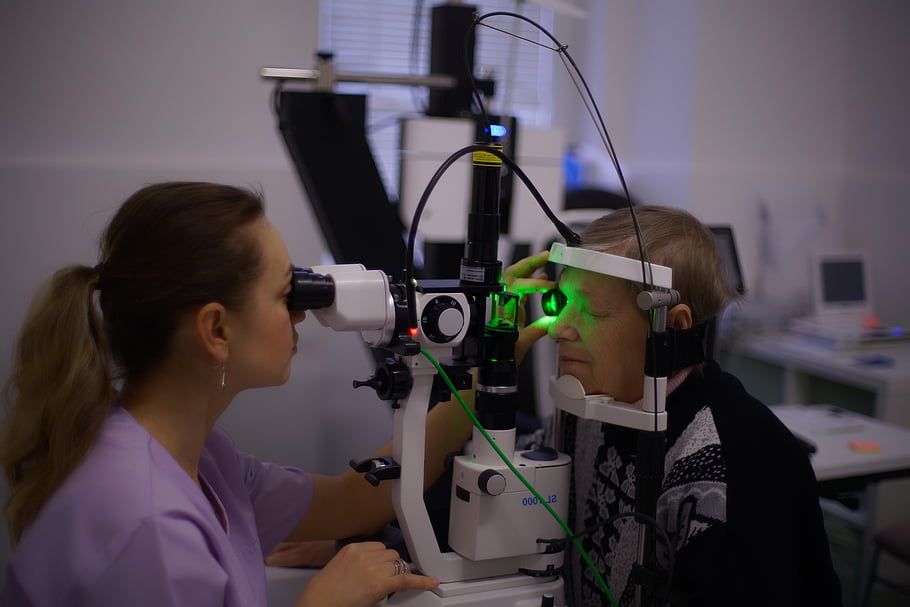Budgeting often feels like a chore, something you do once and forget about. But let’s face it, life is full of surprise expenses that can throw a wrench in even the best-laid plans. While most people remember to budget for rent, groceries, and utilities, a lot of other important expenses often get overlooked. These are the kinds of things that don’t happen every month but can pile up if you ignore them. To help you out, here’s a list of 14 things you should always budget for but most of us never do.
1. Medical Expenses

Most people think about healthcare costs only in terms of their insurance premiums or deductibles, but there’s a lot more to it. Out-of-pocket expenses like prescriptions, over-the-counter medications, and even unexpected doctor visits can add up quickly. According to a study by the Peterson-KFF Health System Tracker, Americans spend nearly $1,200 annually on average in out-of-pocket healthcare costs. That’s why it’s crucial to set aside a little money each month specifically for medical expenses, even if you’re currently healthy. Trust me, your future self will thank you when that unexpected bill arrives.
It’s not just about your physical health, either. Mental health expenses, such as therapy or counseling, can also be substantial and often aren’t fully covered by insurance. These sessions can be an essential part of your well-being, so consider it an investment in yourself. Also, don’t forget about dental and vision care, which are usually separate from your main health insurance. Budgeting for these can prevent financial strain when it’s time for a new pair of glasses or a cavity filling.
2. Car Maintenance

If you own a car, you know it’s more than just a one-time expense. Regular maintenance like oil changes, tire rotations, and brake checks are essential for keeping your vehicle in good shape. Neglecting these things can lead to costly repairs down the line, and let’s be honest, nobody wants to drop a fortune on a new transmission. By setting aside a small amount each month for routine car care, you’re more likely to avoid sudden, large expenses. Think of it as a form of insurance for one of your most valuable assets.
In addition to routine maintenance, you need to budget for less frequent but equally important expenses. Things like new tires, battery replacements, or even a new timing belt can catch you off guard if you’re unprepared. It’s not as glamorous as saving for a vacation, but keeping your car running smoothly is worth the peace of mind. Plus, regular maintenance can improve fuel efficiency and lengthen the life of your car. So, it’s really a win-win situation when you think about it.
3. Home Repairs

Whether you own or rent, unexpected home repairs can seriously dent your budget. From leaky faucets to broken appliances, living spaces require regular upkeep. A report by HomeAdvisor found that homeowners typically spend around $3,000 per year on home maintenance and repairs. It’s wise to set aside a separate fund for these kinds of emergencies, especially if you’re residing in an older home. Even renters should consider this, as not all issues will be covered by a landlord.
Remember that some home repairs are seasonal. Heating systems may need attention as winter approaches, while air conditioning units often require maintenance in the summer. Budgeting for these predictable expenses can save you from a financial crisis when something inevitably goes wrong. It’s also a good idea to keep a list of trusted professionals for various types of repairs. This way, when something breaks, you won’t waste time and money figuring out who to call.
4. Entertainment And Hobbies

It’s easy to think of entertainment as a luxury, but having fun is a fundamental part of a balanced life. Whether it’s a gym membership, streaming services, or tickets to see your favorite band, these are the things that make life enjoyable. Yet, these expenses often get ignored until you’re staring at an empty bank account. The key is to treat them as essential parts of your budget, not afterthoughts. This way, you won’t feel guilty when you indulge in something that makes you happy.
Setting aside money for hobbies and entertainment can also help you avoid impulsive spending. Let’s face it, everyone needs a break now and then, but if you don’t plan for it, you’re more likely to splurge suddenly. Allocating funds for this purpose allows you to enjoy your leisure time guilt-free. It also helps you prioritize what’s really important to you, so you can spend your money on experiences that are truly fulfilling. So go ahead, plan for that weekend getaway or that pottery class you’ve been eyeing.
5. Gifts And Special Occasions

Birthdays, weddings, and holidays come around like clockwork, yet they often catch us off guard financially. According to a survey by the National Retail Federation, the average American spends about $998 on gifts during the holiday season alone. Setting aside money each month for gifts and special occasions can alleviate the financial stress when these events roll around. Additionally, having a budget for this means you can be more thoughtful with your gift-giving, as you’re not rushed to buy the first thing you see.
It’s not just about gifts either; think about other expenses that come with special occasions. Travel, dining out, and even outfits for these events should be considered. Not planning for these can lead to overspending or even missing out on experiences because you didn’t budget for them. By preparing ahead, you’re not forced to cut corners or make sacrifices. Instead, you can celebrate these moments fully, knowing that you’re financially prepared.
6. Education And Personal Development

Whether it’s a course to improve your skills or a conference to expand your network, personal development is an investment in your future. Unfortunately, many people overlook this in their budgeting process. Education doesn’t have to be formal or expensive to be valuable. Online courses, books, and even workshops can provide significant benefits to your career or personal life. Setting aside a monthly budget for this can open up opportunities you might otherwise miss.
Consider this: the world is constantly changing, and keeping your skills up-to-date is more important than ever. Whether you’re learning a new language, mastering a software program, or enhancing your soft skills, you’re making yourself more marketable. But it doesn’t have to break the bank if you plan for it. A little bit each month can add up, allowing you to take advantage of opportunities without financial strain. Investing in yourself is one of the best financial decisions you can make.
7. Pet Expenses

Owning a pet is a joy, but it comes with responsibilities that have financial implications. From vet bills to grooming, pets require care that extends beyond their adoption fee. Dr. Gary Richter, a veterinary health expert, suggests budgeting for both routine and unexpected vet expenses to ensure your pet’s well-being. Many pet owners underestimate these costs, leading to financial stress when their furry friend needs medical attention. By planning ahead, you can provide your pet the care it deserves without breaking the bank.
Routine expenses like food and toys are just the tip of the iceberg. You also need to consider costs like training, boarding, and pet insurance. These add up quickly, especially if you’re unprepared. Having a pet fund can help you manage these regular expenses and handle emergencies gracefully. Your pet is a part of your family, so giving them the best life possible is worth every penny you plan for it.
8. Clothing And Personal Care

Many people underestimate how much they spend on clothing and personal care until they see their credit card statements. These are necessities that impact your daily life, yet they often go unplanned in budgets. Instead of making last-minute purchases, allocate a set amount each month to update your wardrobe and stock up on personal care items. This can save you money in the long run and help you avoid impulse buys. Plus, when a sale comes around, you’ll have the funds to take advantage of it without guilt.
Remember, personal care isn’t just about looking good; it’s about feeling good, too. Whether it’s skincare, haircuts, or even occasional spa treatments, these things contribute to your overall well-being. Budgeting for them ensures you’re taking care of yourself beyond just the essentials. It’s not vain or frivolous; it’s a way to maintain your confidence and happiness. After all, when you feel good about yourself, it reflects in every part of your life.
9. Emergency Funds

You’ve probably heard it before: everyone needs an emergency fund. But do you really have one that’s adequate? Unfortunately, many people think of an emergency fund as a nice-to-have rather than a must-have. A good rule of thumb is to have three to six months’ worth of living expenses saved up, but if that’s not feasible, start with a goal you can achieve. Setting this up can protect you from financial ruin when life throws you a curveball.
Think of your emergency fund as your financial safety net. It’s there for unforeseen circumstances like job loss, medical emergencies, or even major car repairs. Without it, you may find yourself scrambling, possibly taking on debt that could have been avoided. Yes, it might mean cutting back in other areas for a while, but the peace of mind it provides is priceless. Start small if you must, but whatever you do, start.
10. Subscription Services

In today’s digital age, subscription services are a dime a dozen. From streaming platforms and meal kits to monthly book clubs, these can quickly become a significant part of your monthly expenses. The problem is that many people sign up and forget about them, leading to a gradual drain on their finances. Taking stock of what you actually use and enjoy is essential, and budgeting for these services can help you make more intentional choices. Knowing exactly what you’re paying for allows you to decide if it’s worth it.
It’s easy to get lured in by free trials or introductory offers, only to find out you’re paying for something you rarely use. By budgeting for subscriptions, you force yourself to evaluate their value regularly. This means you’re more likely to keep what truly adds value to your life and cancel what doesn’t. It’s not about depriving yourself; it’s about being smart with your money. After all, a little mindfulness can go a long way in preserving your financial health.
11. Tech Upgrades And Repairs

Gadgets have become essential in our daily lives, but they don’t come cheap. Many people hold onto their devices as long as possible, only to be hit with a hefty bill when something finally gives out. This is where budgeting for tech upgrades and repairs can save you from financial strain. Setting aside a small amount each month means you’re prepared when the inevitable happens. It also allows you to upgrade to new technology when needed without financial stress.
Consider all the tech you use daily—phones, laptops, tablets, and even smart home devices. Each of these has a lifespan, and planning for their replacement is wise. You can also use this budget for accessories that prolong the life of your devices, like protective cases or software updates. Plus, being financially prepared can help you take advantage of sales and deals when they come up. The key is to stay ahead of the game, so you’re never caught off guard.
12. Travel Expenses

Even if you’re not a frequent traveler, setting aside funds for travel can open up opportunities you might otherwise miss. Whether it’s a weekend getaway or an international adventure, travel enriches your life in ways that few other experiences can. Many people see travel as a luxury rather than a necessity, but treating it as an essential part of your budget can change your perspective. It allows you to explore new places without financial worry. Plus, when the perfect travel deal comes along, you’ll be ready to seize it.
Planning for travel doesn’t just mean budgeting for flights and hotels. Consider the other expenses that come with it, like dining out, activities, and souvenirs. By accounting for these, you ensure that your travel experience is as enjoyable as possible. There’s also something empowering about knowing you can afford to take a trip. It gives you a sense of freedom that’s hard to match, making all the budgeting worth it.
13. Charitable Contributions

Many people have the desire to give back, but financial constraints often put a damper on their charitable intentions. Allocating a portion of your budget for charitable contributions can help you achieve your philanthropic goals without feeling the pinch. Even a small amount set aside each month can make a difference over time. Plus, knowing that you’re contributing to causes you care about adds a layer of fulfillment to your financial planning. It’s a win-win, benefiting both you and the charities you support.
Being intentional with your charitable giving also means you can be more strategic. You’re able to research organizations, understand where your money is going, and ensure it aligns with your values. This thoughtful approach can lead to more meaningful contributions. Plus, it allows you to plan for special campaigns or emergencies without sacrificing your financial health. When giving is part of the plan, it becomes another enriching aspect of your life, rather than a source of stress.
14. Seasonal And Holiday Expenses

Seasonal and holiday expenses can sneak up on you if you’re not prepared. Whether it’s Halloween costumes, Thanksgiving dinners, or summer BBQs, these events often come with added costs. Allocating a specific budget for these helps you enjoy each season without financial stress. It allows you to participate fully in celebrations and traditions without feeling guilty about overspending. Plus, when you spread these expenses throughout the year, they become much more manageable.
Remember, it’s not just about the big holidays. Smaller seasonal changes can also impact your budget. Think about things like winterizing your home, buying new seasonal clothes, or even gardening supplies for spring. These are all predictable expenses that can be planned for in advance. By including them in your budget, you ensure that you’re ready for whatever the year brings without unexpected financial strain.
This article is for informational purposes only and should not be construed as financial advice. Consult a financial professional before making investment or other financial decisions. The author and publisher make no warranties of any kind.








